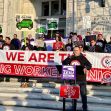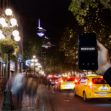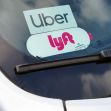Much ink has been spilled about Prop 22, California’s 2020 ballot initiative that made it clear gig workers such as drivers for companies like Uber, Lyft and DoorDash are not employees of the companies they work for. They are now officially independent contractors and therefore not entitled to employee benefits such as minimum wage, overtime pay, rest periods and meal breaks, workers’ compensation insurance, or the right to unionize and bargain with their employer.
Prop 22 passed in no small part due to a record-setting and budget-busting campaign mounted by the big three gig employers in California – Uber, Lyft and DoorDash. Although the measure succeeded in keeping drivers from being considered employees of the companies they drive for, one of the campaign’s selling points was that it included protections for drivers that guarantee they won’t be mistreated by the companies when it comes to pay and benefits. These benefits are discussed below.
Prop 22 Gives Drivers an Earnings Guarantee, a Healthcare Subsidy, and Injury Benefits Similar to California Workers’ Compensation
Although Prop 22 might be a setback to drivers who were hoping for employee-style protections and benefits, the ballot measure was not wholly without some advantages for the drivers. In fact, a selling point of the campaign was that the companies would take care of their drivers and treat them favorably, while still keeping them as independent contractors. Under Prop 22, transportation network companies and delivery network companies must provide the following for their drivers:
Earnings Guarantee - Drivers who are “engaged” with the app (picking up or transporting a rider, picking up or making a delivery) cannot be paid less than a “net earnings floor” that is at least 120% of the minimum wage or 30 cents per engaged mile (adjusted annually for inflation), excluding tips. If less, the company has to make up the difference. Drivers also keep 100% of their tips, exclusive of the earnings guarantee.
App-Based Driver Rest - Drivers are limited to working no more than 12 hours in any one 24-hour period unless they have been logged out of the app for at least six consecutive hours within that timeframe. Drivers who violate this rule must be locked out of the app for at least six consecutive hours.
Healthcare Subsidy – Qualifying drivers will receive a quarterly health care subsidy commensurate with the benefits provided under the Affordable Care Act (ACA) and its state-level counterpart, Covered California. A driver who averages 25 hours or more per week of engaged time during the quarter will get a payment greater than or equal to 100% of the average ACA contribution.
Drivers engaged for 15 to 25 hours per week will get a payment greater than or equal to 50% of the average ACA contribution.
“Average ACA contribution” is defined as 82% of the dollar amount of the average monthly Covered California premium.
Accident and Injury Insurance – Companies must provide accident insurance to cover medical expenses and lost income that flow from injuries suffered by a driver while logged into the app. This insurance must cover medical expenses up to at least one million dollars, as well as disability payments equal to two-thirds of the driver’s average weekly earnings as a rideshare driver.
Accidental Death Benefit – In the case of accidental death occurring while the driver is online, the company must provide accidental death insurance for the benefit of a spouse, children or other dependents. This insurance covers medical costs as well as burial expenses and death benefits in accordance with California labor law, i.e., up to $10,000 in reasonable burial expenses plus a death benefit ranging from $125,000 to $290,000 depending on the number of dependents.
It’s the nature of California ballot initiatives that each side tries to convince voters they are truly on the side of the worker. Prop 22 ads on both sides featured drivers claiming the measure was either good or bad for them. If you follow the money, you would likely conclude Prop 22 was meant to benefit Uber, Lyft and DoorDash, and not the people who work for them. Regardless of whether drivers would be better off as employees than independent contractors, Prop 22 at least did not leave drivers entirely out in the cold when it comes to vital worker issues such as pay, rest, healthcare, and workers’ compensation for injuries on the job.






